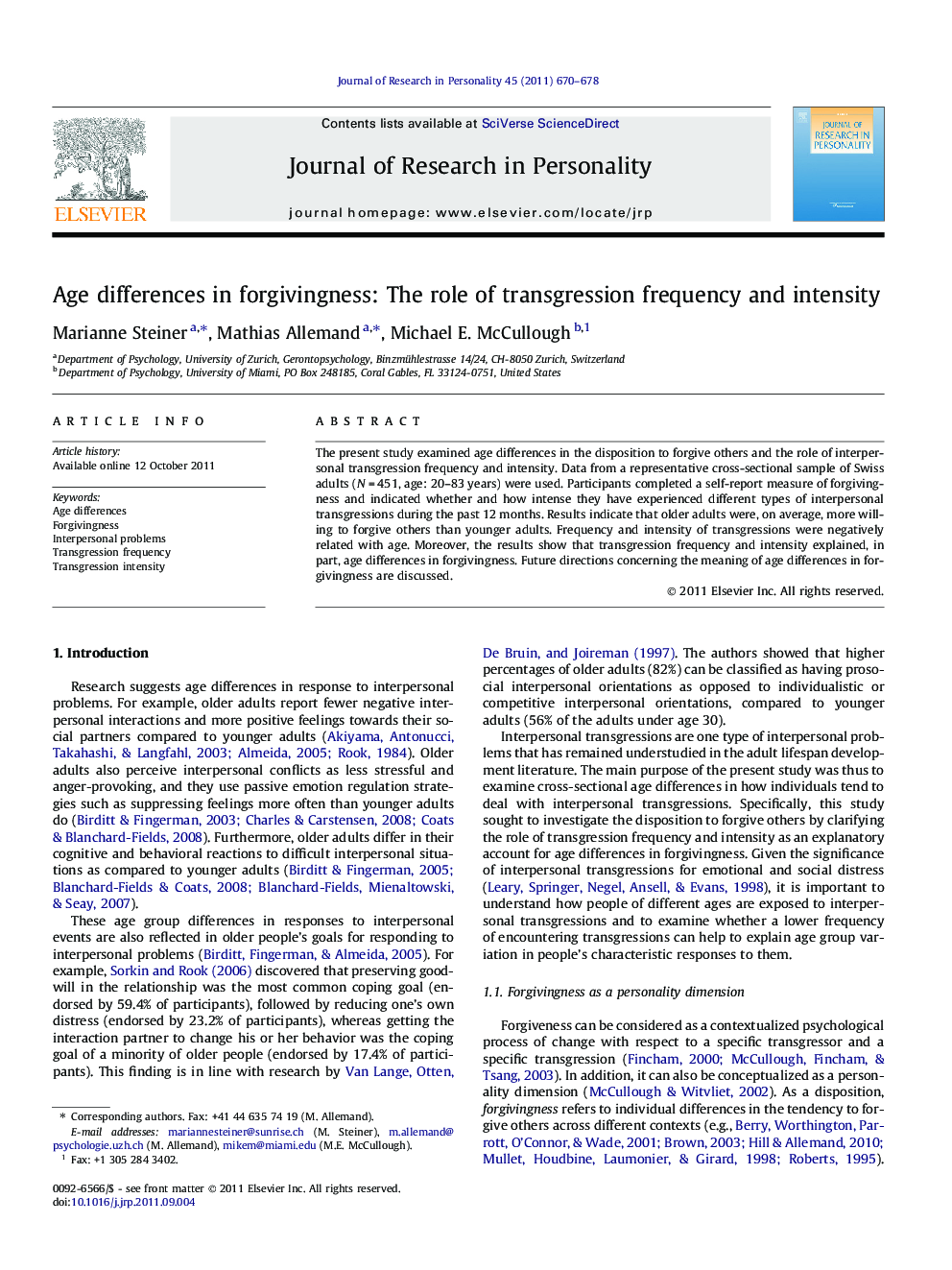| Article ID | Journal | Published Year | Pages | File Type |
|---|---|---|---|---|
| 951715 | Journal of Research in Personality | 2011 | 9 Pages |
The present study examined age differences in the disposition to forgive others and the role of interpersonal transgression frequency and intensity. Data from a representative cross-sectional sample of Swiss adults (N = 451, age: 20–83 years) were used. Participants completed a self-report measure of forgivingness and indicated whether and how intense they have experienced different types of interpersonal transgressions during the past 12 months. Results indicate that older adults were, on average, more willing to forgive others than younger adults. Frequency and intensity of transgressions were negatively related with age. Moreover, the results show that transgression frequency and intensity explained, in part, age differences in forgivingness. Future directions concerning the meaning of age differences in forgivingness are discussed.
► We examine age differences in forgivingness and transgression frequency and intensity. ► Age is positively related to forgivingness. ► Age is negatively related to transgression frequency and intensity. ► Frequency and intensity partially explain age differences in forgivingness.
